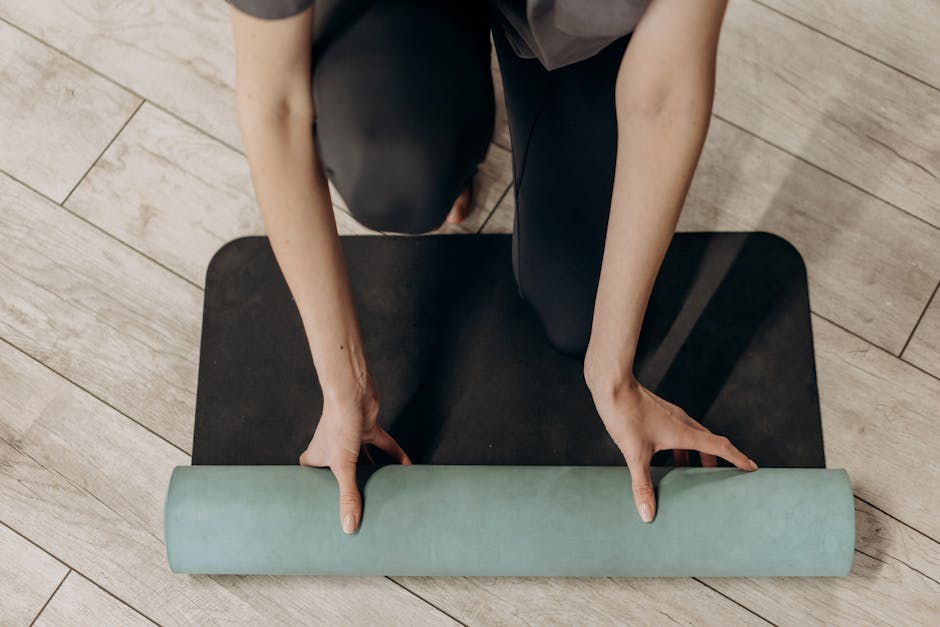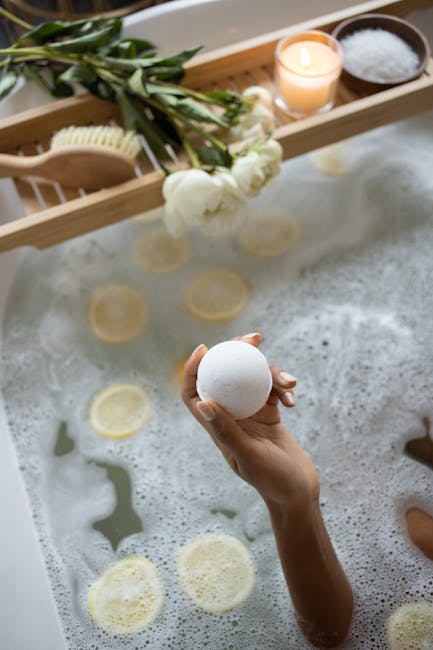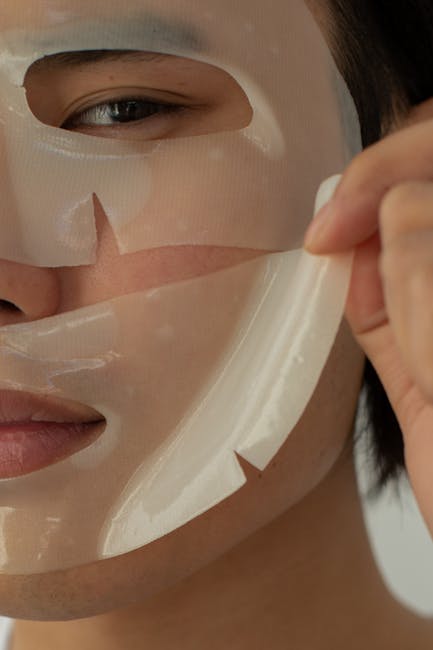Feeling frazzled? You’re not alone. In the hustle and bustle of modern life, taking time for yourself can seem like a luxury you can’t afford. But what if I told you that establishing a consistent self-care routine could be the secret sauce to not just surviving, but thriving? Stick around, and I’ll show you how to transform your well-being with simple, actionable steps that fit into even the busiest of schedules.
Key Takeaways
- Understand the true meaning of self-care and what it is not.
- Learn a 5-step approach to creating a self-care routine that sticks.
- Discover how to overcome common barriers to self-care.
- Explore the numerous benefits of a consistent self-care routine.
- Find out how to create a balanced and personalized self-care plan.
- Get tips on implementing and maintaining your self-care routine.
Understanding Self-Care
Definition of Self-Care
Physical, mental, and emotional well-being
Self-care is the practice of taking an active role in protecting one’s own well-being and happiness, particularly during periods of stress. It’s about nurturing your physical, mental, and emotional health through deliberate activities that promote wellness and reduce stress.
What Self-Care Is Not
Not indulging every whim
Self-care isn’t about giving in to every desire or impulse. It’s not an excuse for self-indulgence or neglecting responsibilities. Rather, it’s about finding a balance that supports your overall health.
Not ignoring responsibilities
True self-care is not about shirking duties or responsibilities. It’s about managing your life in a way that doesn’t deplete your energy and allows you to meet your obligations with vitality.

A 5-Step Approach to Establishing a Self-Care Routine
Identify Personal Needs
Start by taking stock of what areas of your life need more attention. Is it sleep, exercise, or perhaps mental stimulation? Recognizing your needs is the first step to addressing them.
Set Clear and Achievable Goals
Once you’ve identified your needs, set clear and realistic goals. Want to meditate daily? Aim for five minutes to start. Small, achievable goals are key to long-term success.
Choose Enjoyable Activities
Select activities you actually enjoy for your self-care routine. If you love nature, consider walks outside. Enjoy reading? Set aside time each day for a book. Enjoyment is a powerful motivator.
Schedule Self-Care Activities
Treat your self-care time like any important appointment. Schedule it in your calendar and honor that commitment to yourself.
Review and Adjust the Plan Regularly
Your needs will change, and so should your self-care routine. Regularly assess and tweak your plan to ensure it continues to serve you well.

Overcoming Barriers to Self-Care
Recognize Obstacles
Time constraints
One of the biggest challenges to self-care is finding the time. But remember, self-care is a necessity, not a luxury. It’s about making yourself a priority.
Feelings of guilt
Many people feel guilty for taking time for themselves. But caring for yourself allows you to care better for others. It’s not selfish; it’s strategic.
Develop Strategies to Overcome Obstacles
Prioritizing self-care
Make self-care non-negotiable. Just as you wouldn’t skip a doctor’s appointment, don’t skip on self-care.
Setting boundaries
Learn to say no. Setting boundaries is crucial for maintaining the integrity of your self-care routine.

Benefits of a Consistent Self-Care Routine
Improved Mental Health
A solid self-care routine can lead to improved mental health, reducing the risk of anxiety and depression.
Better Stress Management
Regular self-care helps you manage stress more effectively, keeping you calmer and more composed in the face of life’s challenges.
Enhanced Overall Well-Being
Consistent self-care contributes to an enhanced sense of overall well-being, making you more resilient and happier.

Creating a Balanced Self-Care Plan
Consider All Dimensions of Self-Care
Physical activities
Incorporate activities that keep your body moving and healthy, like yoga, walking, or dancing.
Mental health practices
Engage in practices that support your mental health, such as meditation, journaling, or learning new skills.
Emotional support
Ensure you have a support system in place for emotional well-being, whether it’s through therapy, friendships, or family connections.
Professional development
Don’t neglect your professional self. Attend workshops, read industry literature, or take courses to keep your skills sharp.
Tailoring to Individual Lifestyle and Needs
Your self-care plan should reflect your personal lifestyle and needs. What works for someone else may not work for you, and that’s okay.

Implementing the Self-Care Plan
Setting Reminders
Use phone alerts or sticky notes as reminders to take breaks and engage in self-care activities throughout your day.
Finding an Accountability Partner
Pair up with a friend or family member who can help keep you accountable to your self-care goals.
Celebrating Small Successes
Acknowledge and celebrate the small victories along your self-care journey. These moments of recognition can be powerful motivators.

Health Benefits of Regular Self-Care
Reduced Anxiety
Regular self-care can lead to a significant reduction in anxiety, helping you to feel more at peace.
Better Sleep
Quality sleep is a cornerstone of good health, and a consistent self-care routine can improve your sleep patterns.
Increased Energy Levels
When you take care of yourself, you’ll likely find that you have more energy to tackle your daily tasks.
Reflecting on the Need for Self-Care
Assessing Current Well-Being
Take time to reflect on your current state of well-being. Are you feeling run down? Stressed? These are signs you need more self-care.
Motivating Self-Care Prioritization
Remember that self-care is not selfish. It’s essential. Motivate yourself to make self-care a priority for a healthier, happier life.
Building the Foundation of Self-Care
Fundamental Needs
Sleep
Quality sleep is non-negotiable. Aim for 7-9 hours per night to ensure your body and mind are well-rested.
Nutrition
Fuel your body with a balanced diet rich in fruits, vegetables, lean proteins, and whole grains.
Hydration
Drink plenty of water throughout the day to stay hydrated and support overall health.
Starting with Simple Activities
Begin with simple, manageable activities. Even a five-minute walk or a moment of deep breathing can be beneficial.
Focusing on Consistency
Consistency is key. It’s better to engage in shorter, regular self-care activities than sporadic, longer sessions.
Maintaining and Adapting the Self-Care Routine
Setting a Schedule
Plan your self-care activities into your daily schedule to ensure they become a regular part of your life.
Creating Reminders
Set reminders on your phone or leave notes in visible places to prompt you to engage in self-care.
Practicing Saying No
Learn to say no to requests and invitations that interfere with your self-care time. Your well-being is important.
Finding an Accountability Buddy
Partner with someone who supports your self-care goals and can help you stay on track.
Avoiding Perfectionism
Don’t aim for a perfect routine. Aim for a routine that is good enough and sustainable.
Stopping the Comparison with Others
Your self-care journey is unique to you. Avoid comparing it to others and focus on what makes you feel best.
Using Positive Affirmations
Positive affirmations can reinforce your commitment to self-care and boost your confidence in maintaining your routine.
Recognizing Successes
Celebrate every success, no matter how small. Recognizing your progress can be incredibly motivating.

Planning for Routine Breaks
Remember to plan for breaks in your routine. It’s okay to take a day off from your self-care activities. Just make sure to get back on track the next day.
Establishing a consistent self-care routine is not just about feeling good in the moment; it’s about setting the foundation for a healthier, more joyful life. By understanding what self-care truly means, recognizing the barriers, and implementing a plan tailored to your needs, you can create a routine that not only fits into your life but enhances it in every way.
For more insights on nurturing your well-being, explore the importance of nurturing healthy relationships for self-care, and consider creating a calming self-care space at home. Remember, prioritizing self-care and personal well-being isn’t just a good idea—it’s crucial for a balanced life (why it’s crucial to prioritize self-care and personal well-being). And never underestimate the power of practicing good hygiene habits as a fundamental part of your self-care routine.
Take the first step today. Your future self will thank you for it.
Nourish Your Well-being: Dive into Our Self-Care Routine FAQ!
What is a self-care routine?
A self-care routine is a personalized and intentional practice that involves activities aimed at taking care of one’s physical, mental, and emotional health. It’s a dedicated time to focus on well-being and can include a variety of activities such as exercise, meditation, proper nutrition, adequate sleep, and any other personal hobbies or practices that contribute to an individual’s overall happiness and health.
Why is establishing a consistent self-care routine important?
Consistency in self-care is crucial because it builds healthy habits that contribute to long-term well-being. A regular routine helps manage stress, enhances mood, boosts energy levels, and improves overall health. It also provides a sense of stability and control, which can be especially beneficial during times of uncertainty or change.
How do I start a self-care routine?
To start a self-care routine, begin by assessing your current lifestyle and identifying areas that need more attention. Set realistic and achievable goals for yourself. Start small by incorporating activities that you enjoy and that make you feel good. Schedule these activities into your daily or weekly calendar to ensure they become a part of your routine.
What are some examples of self-care activities?
Self-care activities can vary widely depending on personal preferences. Examples include physical activities like yoga or jogging, mindfulness practices such as meditation or journaling, creative outlets like painting or playing an instrument, and simple acts of self-kindness such as taking a long bath or reading a book.
How much time should I dedicate to my self-care routine?
The amount of time dedicated to self-care can differ from person to person. It’s not about the quantity of time but the quality of the activities you choose. Even 15-30 minutes a day can be beneficial if spent on meaningful self-care practices. The key is to make self-care a priority and to be consistent with your routine.
Can self-care help with anxiety and depression?
Self-care can be a valuable tool in managing symptoms of anxiety and depression. Activities that promote relaxation and stress relief, such as mindfulness and physical exercise, can have a positive impact on mental health. However, self-care is not a substitute for professional treatment, and those experiencing severe anxiety or depression should seek help from a qualified healthcare provider.
How do I stay motivated to maintain my self-care routine?
Staying motivated can be challenging, but setting clear and achievable goals, tracking your progress, and rewarding yourself for sticking to your routine can help. It’s also important to remember the benefits of self-care and how it improves your overall quality of life. If you miss a day, be kind to yourself and get back on track without self-judgment.
What if I don’t have time for self-care?
If you’re struggling to find time for self-care, it’s important to evaluate your priorities and see where you can make adjustments. Sometimes, it’s about working smarter, not harder. Incorporate self-care into activities you’re already doing, like practicing deep breathing during a commute or choosing a healthier lunch option. Remember, self-care is an investment in your health and well-being, and it’s worth finding time for.
Is a self-care routine the same for everyone?
No, a self-care routine is highly individualized. What works for one person may not work for another. It’s important to listen to your body and mind, and choose activities that resonate with you personally. Your routine should be tailored to fit your unique needs, preferences, and lifestyle.
How do I know if my self-care routine is effective?
You can gauge the effectiveness of your self-care routine by how you feel overall. Are you experiencing less stress? Do you feel more energized and balanced? It’s also helpful to reflect on your mood and well-being before and after your self-care activities. Adjustments can always be made to ensure your routine continues to meet your evolving needs.



